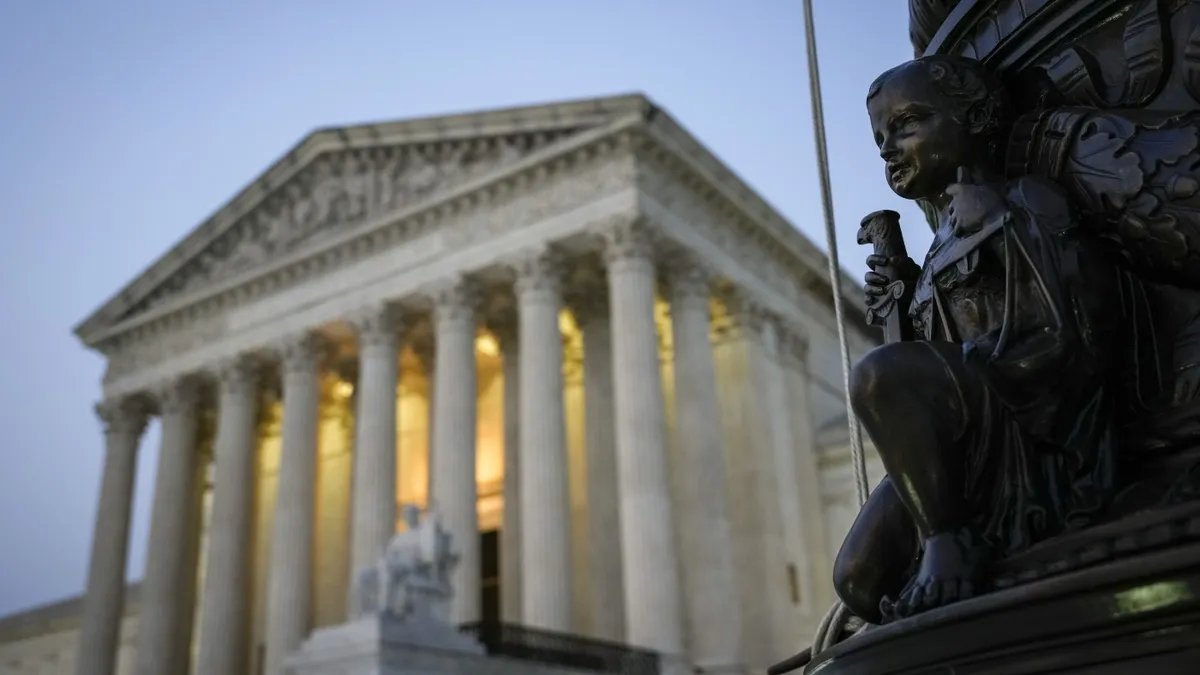
On Friday, the Supreme Court made a significant ruling by allowing the Trump administration to temporarily pause the CHNV humanitarian program. This program has provided legal entry to nearly half a million individuals from Cuba, Haiti, Nicaragua, and Venezuela to the United States for a duration of two years. With this decision, those from these nations who were granted temporary parole may now face the risk of deportation as the legal case unfolds in lower courts.
The court's brief order did not include a specific rationale for its ruling. However, Justice Ketanji Brown Jackson, supported by Justice Sonia Sotomayor, issued a dissenting opinion. In her dissent, Justice Jackson articulated that the court's decision has caused irreparable harm to those admitted under the CHNV program, emphasizing that the ruling dismisses the severe consequences of abruptly altering the lives of nearly half a million noncitizens while their legal claims remain unresolved.
Initiated by the Biden administration in 2021 and reinstated in 2023, the CHNV program was designed to allow individuals facing dire circumstances in their home countries to seek temporary refuge in the U.S. This humanitarian initiative is rooted in federal law established by the 1952 Immigration and Nationality Act, which permits the entry of individuals when safety is a concern due to conditions in their homeland.
The program is reminiscent of previous humanitarian parole efforts, such as those that aided approximately 30,000 Hungarians escaping Soviet oppression. Throughout history, various administrations have utilized this parole system to address urgent immigration needs, ensuring that individuals with U.S. sponsors can gain entry into the country.
The CHNV program is comparable to other recent humanitarian efforts, including those established after the Russian invasion of Ukraine, which allowed around 200,000 people to enter the U.S. Additionally, following the withdrawal of U.S. troops from Afghanistan, over 76,000 Afghan individuals were granted similar temporary protections. While the Trump administration has yet to terminate the Ukraine programs, it did end the Afghan program as of July 14.
Upon taking office, President Trump signed an executive order aimed at discontinuing all categorical parole programs. In March, DHS Secretary Kristi Noem announced the immediate termination of the CHNV parole process, stating that the government's interest in deportation outweighed the protections afforded to parolees. This marked the first mass termination of a humanitarian program of its kind.
Affected individuals and their sponsors contested Secretary Noem's order in court. A federal district court judge in Massachusetts ruled in their favor, concluding that the secretary had overstepped by attempting to accelerate the removal of individuals who still had remaining time on their two-year protection. The judge also noted that the abrupt termination violated the statutory requirement for case-by-case evaluations of parole.
Following the district court's ruling, the First Circuit Court of Appeals declined to intervene immediately but advised the government to pursue an expedited appeal. Rather than following this route, the government opted to appeal directly to the Supreme Court, seeking to overturn the lower court's order. The government argued that the secretary's decision to shorten the two-year term set by the Biden administration was beyond judicial review. Additionally, it contended that the statute does not necessitate a case-by-case approach to parole determinations and that such a requirement would impose an undue burden on governmental resources.
As this case continues to evolve, the implications for the CHNV humanitarian program and its beneficiaries remain significant, raising critical questions about the future of humanitarian parole in the United States.